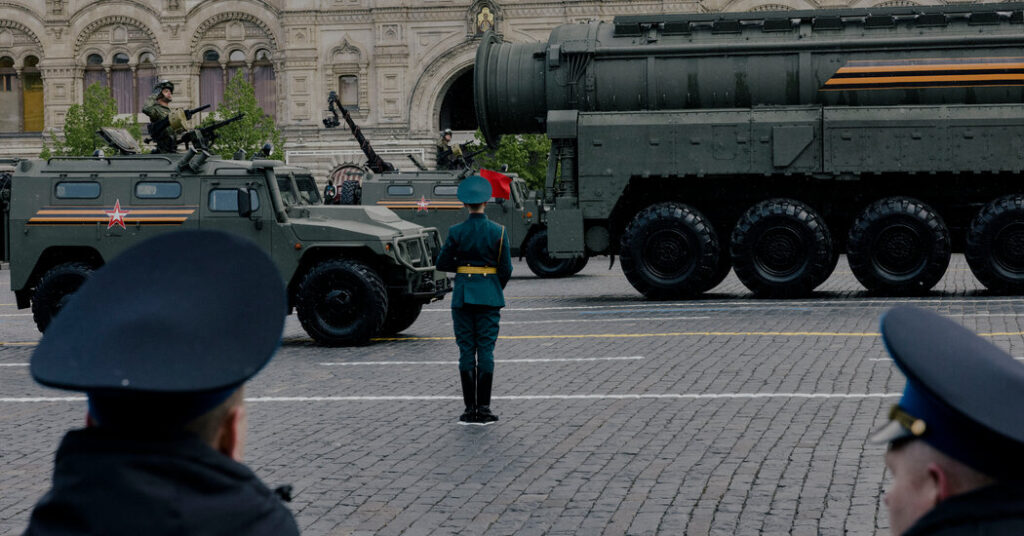The Biden administration on Wednesday announced a series of new financial sanctions aimed at disrupting rapidly growing technology ties between China and Russia that U.S. officials believe are underpinned by Russia’s broader efforts to rebuild and modernize its military during its war with Ukraine. behind.
The actions were announced as President Joe Biden left the country for a meeting of the Group of Seven industrialized economies in Italy, where a top priority will be renewed efforts to weaken the Russian economy.
Over the past six to eight months, China has stepped up exports of microchips, drone optics and advanced weapons parts, U.S. officials said, an effort that has become more complicated for a country that had previously been on the sidelines. But so far, Beijing appears to have heeded Biden’s warnings about sending weapons to Russia, even as the United States and NATO continue to arm Ukraine.
“Russia’s wartime economy is deeply insulated from the international financial system, creating a desperate need for the Kremlin’s military to engage with the outside world,” U.S. Treasury Secretary Janet Yellen said in announcing the new sanctions.
The core of the new measures is the expansion of “secondary” sanctions, giving the United States the power to blacklist any bank around the world that does business with Russian financial institutions already facing sanctions. The move is aimed at preventing small banks, especially in places like China, from helping Russia finance its war.
The U.S. Treasury Department has also imposed restrictions on the Moscow Stock Exchange in hopes of discouraging foreign investors from backing Russian defense companies. The sanctions hit several Chinese companies accused of helping Russia obtain critical military equipment such as electronics, lasers and drone parts.
While the measures expand the scope of the U.S. sanctions program, the Biden administration has so far not imposed sanctions on Chinese or European banks it believes are helping Russia. The new measures do not restrict banks from facilitating transactions related to Russian energy exports, which the Biden administration has allowed to continue out of concern that restricting banks could fuel inflation.
U.S. Secretary of State Antony J. Blinken said the State Department was imposing sanctions on more than 100 entities, including companies “engaged in the development of Russia’s future energy, metals and mining production and export capabilities.”
Biden has previously tried to cut off supplies and financing to Russia, but overestimated the impact. In March 2022, shortly after the war began, he announced the first round of financial actions, declaring, “As a result of these unprecedented sanctions, the ruble was reduced to rubble almost immediately.” No. After a brief dip, it has recovered, and while today’s performance is not as strong as a year ago, the Russian economy has been growing thanks to war-related growth momentum.
This is largely due to China’s efforts. It has been buying Russian oil, often at a discount to world prices. It has also stepped up sales of dual-use products, especially microelectronics and software needed to make weapons systems, drones and air defense systems.
The result is the rise of somewhat parallel war economies among Russia, China, Iran and North Korea. Many of the sanctioned companies are based in Hong Kong or in Shenzhen, China’s technology manufacturing hub near the border. Government officials insist, however, that this time, they can block already deepening commercial ties.
The United States has imposed sanctions on more than 100 Chinese entities that have been assisting Russia, but so far they have done little to deter Chinese companies or the government.
In announcing new restrictions on Chinese companies, the Biden administration also hopes to prompt European governments and possibly Asian allies to take similar measures.
Blinken discussed the issue with European counterparts at a North Atlantic Treaty Organization meeting in Prague last month, and U.S. officials intend to put it on the agenda for a leaders summit in Washington in July. The NATO summit is expected to include not only member leaders but also the heads of state of Japan, South Korea, New Zealand and Australia – U.S. allies in Asia who are part of a Washington-led alliance aimed at countering China’s military might.
Blinken also warned the Chinese government that it cannot expect to establish friendly relations with European powers if it supports the Russian defense industry.
On May 31, Blinken said at a press conference in Prague that 70% of Russia’s imported machine tools come from China, and 90% of microelectronics products come from China.
“China cannot expect to improve relations with European countries on the one hand and contribute to the biggest threat to European security since the end of the Cold War on the other,” he said.

